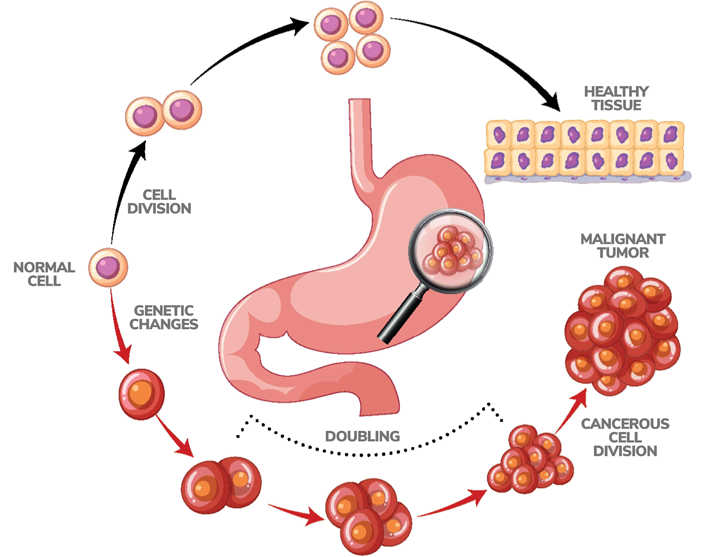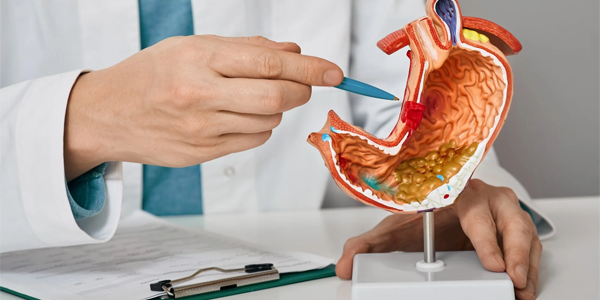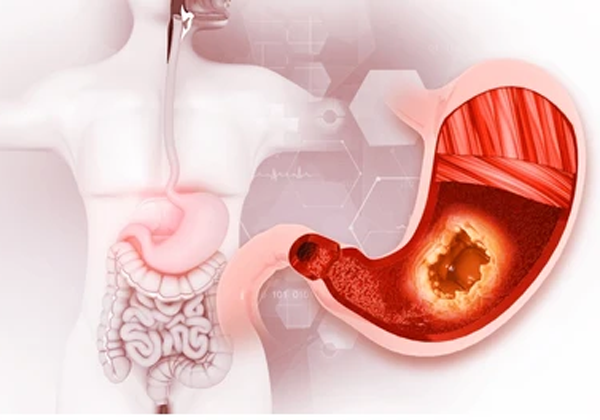Best Stomach Doctor in Ahmedabad
Stomach cancer can be a daunting diagnosis for anyone, but finding the right doctor to guide you through treatment can make all the difference.
What is Stomach Cancer?
Stomach cancer, also known as gastric cancer, typically starts in the inner lining of the stomach. As the cancer progresses, the cancerous cells penetrate deeper into the stomach walls. For expert diagnosis and treatment, trust Dr. Sourabh Damani, the leading Stomach Cancer Surgeon in Ahmedabad. Dr. Damani’s expertise and personalized care ensures the best possible outcome for his patients.

Know About Stomach Cancer
Locations : Stomach cancer can develop in various parts of the stomach
- Cardia - The upper part of the stomach near the esophagus.
- Fundus - The upper section of the stomach, above the cardia.
- Body - The middle part of the stomach, between the fundus and the antrum.
- Antrum - The lower part of the stomach, near the small intestine.
- Pylorus - The narrow passage that connects the stomach to the small intestine.
Common Symptoms
- Persistent indigestion or discomfort in the upper abdomen
- Feeling full after eating small amounts of food
- Nausea and vomiting, especially after meals
- Unintentional weight loss
- Abdominal pain or swelling
- Blood in the stool or black, tarry stools
- Loss of appetite
- Difficulty swallowing
- Frequent heartburn or acid reflux

Stomach cancer is categorized into stages based on the disease’s progression:
- Stage 0 - Cancer is confined to the inner layer of the stomach lining.
- Stage I - Cancer has spread deeper into the stomach wall or nearby lymph nodes.
- Stage II - Cancer has extended further into surrounding tissues or additional lymph nodes.
- Stage III - Cancer has invaded nearby organs or a significant number of lymph nodes.
- Stage IV - Cancer has spread to distant organs or distant lymph nodes.
Staging
Staging for stomach cancer includes the following methods:
- EUS (Endoscopic Ultrasound) - This less invasive procedure combines endoscopy and ultrasound technology to produce detailed images of the stomach and nearby lymph nodes, helping determine the stage of stomach tumors.
- CT scan (Computed Tomography Scan) - This medical imaging method uses X-rays and computer processing to create detailed cross-sectional images of the body, aiding in the assessment of cancer spread.
- PET-CT Scan (Positron Emission Tomography-Computed Tomography Scan) - This imaging procedure combines PET and CT technologies to provide comprehensive images that show both the structure and metabolic activity of tissues, offering detailed staging information for stomach cancer.

